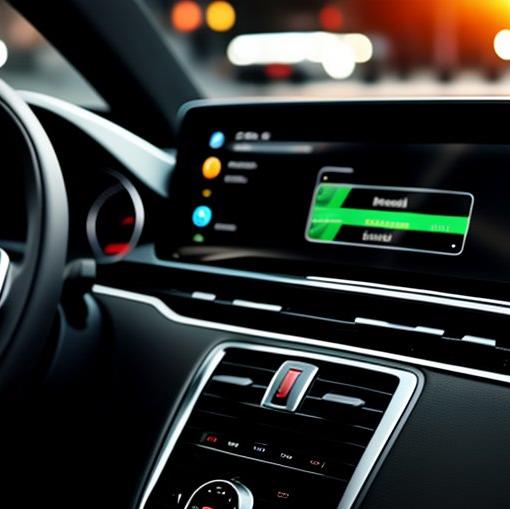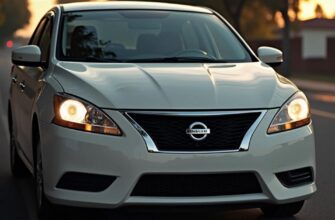The advanced Chassis Control System in the Nissan Rogue utilizes sophisticated technology to enhance stability and handling. However, errors in this system can leave drivers confused and concerned. This comprehensive guide delves into the Nissan Rogue Chassis Control System Error – from causes to troubleshooting tips – to help you resolve issues promptly and securely.
What is the Nissan Rogue Chassis Control System?
The Chassis Control System in the Nissan Rogue integrates various components and sensors to optimize driving dynamics. Here’s an overview:
- Stability Control: Also called Vehicle Dynamic Control (VDC), this system brakes individual wheels and reduces engine power to minimize oversteer or understeer. This enhances stability during cornering, acceleration, and sudden maneuvers.
- Traction Control System: Regulates wheelspin by automatically braking slipping wheels. This allows stable launches and acceleration on slippery surfaces.
- Active Trace Control: Applies brakes to counter understeer during turns and keep you on the intended path.
- Active Engine Braking: Uses engine resistance to simulate downshifting and assist deceleration. This extends brake pad life.
- Active Ride Control: Adjusts shock absorbers according to road conditions and driving style for a smoother ride.
These technologies constantly monitor vehicle parameters through sensors and make subtle adjustments to braking, suspension, and powertrain to optimize handling and control.
What is the Chassis Control System Error?
The Chassis Control System Error occurs when there is a malfunction within this electronic stability management system. It triggers warning lights and messages on the dashboard to alert the driver.
While the root cause varies, the error essentially means your Nissan Rogue’s stability, traction and braking systems cannot function optimally. This affects vehicle dynamics and reduces active safety mechanisms designed to prevent skids or loss of control.
Common Causes of Chassis Control System Error
Several issues can disrupt the Chassis Control System and cause error warnings:
1. Faulty Sensors
Key sensors that relay data to the system like steering angle, yaw rate, wheel speed and lateral acceleration sensors can malfunction and transmit erroneous readings. This confuses the system.
2. Software Bugs
Glitches in system programming may lead to incorrect responses or failure to detect issues accurately. Software updates may be required to address such bugs.
3. Mechanical Problems
Wear and tear of braking, suspension and steering components like control arms, struts, ABS module or steering rack can affect system operation.
4. Wheel Speed Sensor Issue
Since the traction control, ABS and stability control rely on accurate wheel speed data, faulty speed sensors will disrupt overall functionality.
5. Low Battery Voltage
Inadequate voltage to components of the Chassis Control System can cause malfunctions, especially in older Rogue models.
6. Aftermarket Modifications
Certain modifications like lifting the vehicle or installing non-factory wheels/tires can impair system performance leading to errors.
Consequences of Chassis Control System Error
It is highly recommended to address Chassis Control System errors promptly. Failure to do so can lead to:
- Reduced vehicle stability and erratic handling on curves, bumps or during evasive maneuvers.
- Wheel slip and loss of traction while launching or accelerating, especially on wet or icy roads.
- Extended stopping distances and reduced ABS effectiveness.
- Difficulty maintaining control in emergency situations.
- Premature wear of components like brake pads or shocks.
Ultimately, the disrupted system dynamics pose critical safety risks and increase chances of accidents.
How to Troubleshoot and Resolve Chassis Control System Errors
Pinpointing the trigger and rectifying Chassis Control System errors requires a strategic approach:
Step 1: Scan for Diagnostic Codes
Use an OBD-II scanner tool to pull diagnostic trouble codes (DTCs) stored in the Rogue’s computer. These codes reveal the exact sensor or component causing the problem.
Step 2: Inspect Sensors
If faulty sensors are suspect, check connectors and wiring harnesses for damage. Ensure sensors are clean. Refer to factory specs and test sensor operation, calibration or resistance as required.
Step 3: Update Software
Updating the Chassis Control Module software using CONSULT-III diagnostic tool can fix bugs. Nissan may release software patches specifically to address system errors.

Step 4: Test Wheel Speed Sensors
Inspect tone rings and clean any debris on speed sensors. Check sensor resistance values against specs. Replace damaged sensors.
Step 5: Confirm Battery Voltage
Use a multimeter to test voltage. Charge or replace the 12V battery if low. The system requires steady voltage.
Step 6: Check Mechanical Components
Inspect braking, suspension and steering parts for damage. Repair or replace worn components contributing to errors.
Step 7: Reset System
Once underlying issues are resolved, reset the Chassis Control System using a diagnostic scanner to clear any leftover error codes.
Step 8: Test Drive Vehicle
Test drive to verify if warning lights remain illuminated and errors persist. The system should now operate normally.
Nissan’s Intelligent Key system offers convenient keyless entry and push-button start. But when there’s an issue with the system, it can leave you stranded and unable to start. Read about Nissan Altima Key System Errors That Prevent Starting.
Key Takeaways
- The advanced Chassis Control System in the Nissan Rogue coordinates various technologies to enhance vehicle stability, traction and braking performance.
- System errors affect dynamic handling and active safety, so prompt troubleshooting is crucial.
- Diagnostic codes reveal the root trigger, guiding appropriate repairs of sensors, software glitches or mechanical issues.
- Following strategic troubleshooting procedures and resetting the system can successfully resolve Chassis Control System errors.
Frequently Asked Questions
Q: Are Chassis Control System errors dangerous?
A: Yes, system errors can seriously compromise stability and handling, increasing accident risks. Have the issue diagnosed and repaired immediately.
Q: Will error warning lights eventually turn off on their own?
A: No, the warning lights will stay on until the underlying problem is properly fixed and error codes cleared using a diagnostic scanner.
Q: Does the Chassis Control System Error affect Rogue models only?
A: No, this system is used across Nissan models including Altima, Pathfinder, Murano etc. The troubleshooting process is similar for related errors.
Q: How can I reset the Nissan Rogue Chassis Control System?
A: Use an OBD-II diagnostic scanner to access the system, clear error codes and perform resets to restore normal function. DIY resets are not recommended.
Q: Do I need to replace the entire Chassis Control Module if there is an error?
A: Not necessarily. In many cases, software updates, sensor replacements or other repairs can resolve the error without replacing the module.
Thorough diagnostics and targeted troubleshooting is key to successfully resolving Nissan Rogue Chassis Control System errors and maintaining optimal performance. Pay attention to any warning signs, and promptly consult a certified technician to identify and rectify the exact issue. With proper repairs, your Rogue’s sophisticated handling and stability systems will continue operating at peak efficiency.








